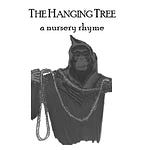Welcome, welcome to another episode of dog and pony show’s SPECTACLE OF DISSENT featuring a very special guest, author
of , fresh off the release of his debut novel, Crimson Veil [BUY BOOK] and essay collection, Dispatches from The Old South Repository [ALSO BUY BOOK]John and I had a grade A conversation about the South, his artistic process, and writing generally. I think you’ll really enjoy this one.
Without further ado, Dissent.14 featuring John Slaughter:
Introductions
John's debut novel Crimson Veil and the emerging genre of “Dixie Noir”
Exploration of Dixie Noir as a literary movement
John’s background: from college writing to Substack essays
How John transitioned from history essays ("American Samurai") to fiction writing
The role of Substack in giving independent writers a platform
Reflections on writing community growth among right-wing and fringe writers
How John’s wife encouraged him to start publishing his thoughts
Early struggles and evolution of Substack as a cultural hub post-2020
John’s writing method: organic storytelling versus strict plotting
How balancing family, work, and writing shaped the timeline of Crimson Veil
Research inspiration: Phenix City, Alabama and its history as "Sin City"
Influence of the Dixie Mafia and postwar corruption on the novel
Reality behind the novel’s big plot twist — stranger than fiction
Historical backdrop: General Patton threatening to destroy Phenix City
Discussion of Albert Patterson’s assassination and his son's political rise
Connections between Phenix City's fall and organized crime migration to Tennessee
Discussion of Walking Tall film and its link to Phoenix City's aftermath
Writing about the South's post-World War II transitional period
The overlooked richness of the late 1940s-early 1950s Southern setting
Cultural and psychological impact of returning WWII soldiers on small towns
How soldiers' trauma fueled vice economies like gambling and prostitution
Discussion of Southern political culture and showmanship
Introduction to political scientist V.O. Key and his study Southern Politics in State and Nation
Florida’s rural, undeveloped postwar political landscape
Plans for Crimson Veil sequel exploring Florida’s underbelly
Challenges and rewards of setting fiction in transitional historical periods
The struggle of writing contemporary fiction versus historical settings
The haunting nature of the South and its connection to generational trauma
Parallels between the Southern literary tradition and Russian literature’s intensity
Reflections on suffering and great storytelling (South, Russia)
Discussion of Margaret Mitchell and Thomas Dixon’s influence on Southern narratives
America’s strong but often underappreciated literary tradition
The idea of the novel "moving" across cultures and times (Russia, England, South America, U.S.)
Publishing frustrations: quality control issues in Amazon self-publishing
Challenges of reaching an audience amidst digital smut and low attention spans
Importance of continuing serious literary work despite market pressures
Revival of serious writing as a cultural renaissance opportunity
Influence of Cormac McCarthy, especially blending Southern Gothic and Western genres
Comparison of Tolstoy vs. Dostoevsky: storytelling styles and personal impact
John’s endorsement of Anna Karenina over War and Peace as a starting point
Reading Russian literature: challenges with character overload and nicknames
Mention of The Master and Margarita by Bulgakov as a surreal Russian classic
Discussion of Nabokov’s Lolita and the difficulty of handling dark subject matter
The necessity of subtlety and hidden critique in oppressive political environments
How constraints often produce better, more enduring art
Final reflections on writing for posterity rather than immediate fame or fortune
I invite John to come join dog and pony show’s Writer’s Workshop—come join us!!
fin
















Share this post